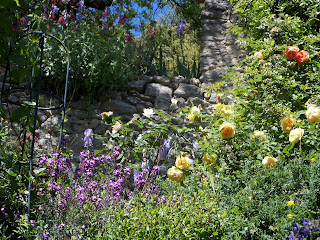2017 UK Election:
On Reflection
On the face of it
the election result showed that the government has no mandate for a
hard Brexit. This, now, is self-evidently the «will of the people»
but don'expect the government to respect that. «The will of the
people» was never more than a convenient excuse and the extreme
right has never had much time for democracy anyway, as its numerous
attempts to avoid parliamentary scrutiny have demonstrated. I think
it would be foolish though to assume that the extreme right is as yet
defeated. Hammond apart, most senior government posts are still held
by the extreme right. Moreover, the mooted alliance with the DUP,
with its overtones of cosiness with terrorist-linked groups and
threat to peace in Northern Ireland, shows a desperate attempt to
cling to power at whatever cost. However, the beauty of the extreme
right is that it cannot embrace compromise and must cling to its
path, even if that path leads to self-destruction. I hope it does in
this case but the extreme right is not dead yet.
Nor should the
revival of the Labour party's fortunes be overestimated. There was
an undoubted large element of tactical voting in the election which
may not be repeated in any future election. However a revival of
some dimension must be accredited and I suspect that Corbyn's focus
on social issues was crucial and hopefully will keep those at the top
of the political agenda. Corbyn is to be congratulated on that and
on securing his place at the head of the Labour party for the forseeable future.
The result obviously
brings into question the form of Brexit the government can go for.
The Daily Telegraph suggests that the government may already be in
secret talks with the Labout party regarding the possibilities for a
soft Brexit. The talks, if they exist, would have to be in secret
because if known they would split the Conservative party completely
in two. May has said she will get the Conservtive party out of the
mess she has got it into but it is very difficult to see how she can
do this. If, again, the talks are happening, they would be in line
with declared Labour policy for a soft Brexit but the Labour party
would be in position to demand more for any cooperation. It could
demand some safeguards on social issues or a parliamentary vote (even
a second referendum?) on any final Brexit deal. Needless to say, any
of that would be anathema to the extreme right. I suspect that
answers to much of this will become clearer once talks with the EU
are underway and the initial issues of the rights of EU citizens and
financial payments are decided (or not). On the former point, I note
that EU Directive 2004/38/EC, which limits free movement for longer
than three months, was never implemented in the UK. Now how did that
happen?
It will be
interesting also to see what line the gutter press in the UK takes in
the future. It's campaigns of hate and misinformation patently
failed but, if Rupert Murdoch and Lord Rothermere have to give up on
their apparent dream of a UK tax haven for the moment, they cannot
but react with anger to any soft Brexit deal. We can expect howls
of headline protest against «27 countries lined up against us»
(they're called the EU) and against the EU totally unreasonably
sticking to its treaties and regulations (how dare it?) but what
else? Has its readership started trying to use its brains, Heaven forbid? If blatant lies and slurs don't work, could a subtler approach
be applied? But then asking the gutter press to be subtle is like
asking an elephant to be dainty and, anyway, their readership would
probably miss any subtlety. Like the Conservative party, the gutter
press will need a rethink.
"Stable and strong" has become weak and wobbly. Time for a rethink indeed.
"Stable and strong" has become weak and wobbly. Time for a rethink indeed.


